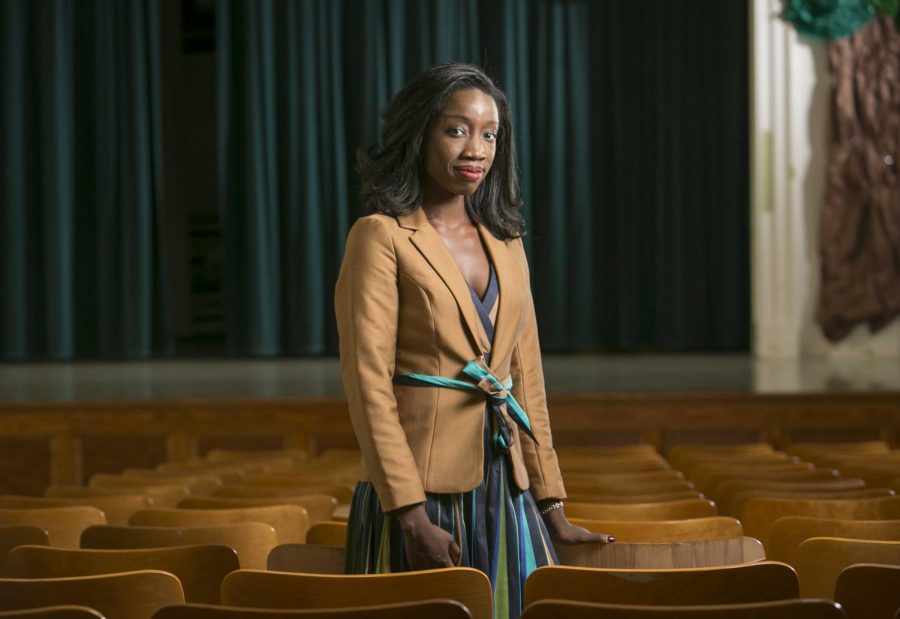Sally Nuamah seeks to empower Black girls with films, research
Prof. Sally Nuamah is a researcher, filmmaker, and non-profit founder.
January 11, 2021
Prof. Sally Nuamah’s (Weinberg Doctorate ’16) scholarship isn’t constrained to the limits of traditionally academic research.
A filmmaker, political scientist, author and non-profit founder, Nuamah has used various mediums to examine the education and political participation of Black women.
Social policy Prof. Jonathan Guryan, her colleague in the Institute for Policy Research, said the scope of Nuamah’s work goes beyond what is typical for social scientists.
“She publishes books, she publishes articles in peer reviewed academic journals,” Guryan said. “And then in addition to that, she also shares her ideas in ways that are more likely to reach non-academic audiences.”
Beyond publication, Nuamah has expanded her reach through her documentary, HerStory. The film features footage of three high-achieving Ghanaian girls and aims to explore ways to make education accessible for Black girls globally.
During her graduate career at Northwestern, Nuamah enrolled in videography courses at Norris University Center. She said she worked on this film for over four years with the objective of “getting people to look at Black girls…as just normal girls.”
Through this documentary, she was able to obtain donations for her scholarship organization, TWII foundation. The foundation has helped educate over 20 Ghanaian girls, many of whom now hold positions in the highest professional tiers.
“Their trajectories have shifted not only educationally but financially for their families. And that is pretty profound to be able to witness,” Nuamah said.
In her book “How Girls Achieve,” Nuamah discusses the challenges Black girls face in education systems that are not designed with them in mind.
Nuamah said this issue is particularly relevant now, as Black Lives Matter and abolition movements gain momentum both on campus and nationwide.
“When people ask for the abolition of police or for the decolonization of education,” Nuamah said, “they’re saying that we want to get rid of the violence that existing structures perpetuate on Black and brown people so that they can be free to thrive as well.”
As an educator herself, Nuamah said her goal is to create a space where students feel free to be themselves.
Fourth-year Ph.D. student Irene Kwon describes Nuamah as a role model. Because of Nuamah’s willingness to spend extra time working with Kwon on her own research, she said she feels they have developed a bond beyond that of a researcher and a research assistant.
“She herself is a woman of color, her parents are from Ghana,” Kwon, who herself is an immigrant, said. “Just seeing all that it’s really gratifying to say, ‘Yeah, I can be that.’”
Nuamah got involved in organizing efforts early on, which led her to a career in policy research. She helped institute African American Studies and Latino Studies in her high school curriculum. As an undergraduate at George Washington University, she worked on health and education policy under former president Barack Obama, who was a senator at the time.
Today, Nuamah’s research focuses on Black women’s democratic participation. At a time when Black women have been credited for deciding the outcome of a national election — through both voter turnouts and organizing efforts — Nuamah is looking into what might happen if such a group is continually ignored by policymakers.
“While we’re really thrilled that many more people participated in this election than before, it’s important for Democratic leaders to be responsive to those groups, so that we can continue to have that high participation,” Nuamah said.
From filmmaking to policy research, Nuamah said her career trajectory is so varied because she focuses on a mission rather than a particular career path. She said she encourages her students to do the same.
According to Nuamah, academia can be an alienating place for students of color because of a “pressure to perform.” Instead of nurturing commitments to social justice, she said educational programs may feel overly concerned with “optics” and pre-professional strategizing.
“I liberated myself a long time ago from this idea that I needed to be something,” she said. “All I have is a mission. And my mission is to help disadvantaged girls have better life chances.”
Email: anushuyathapa2023@u.northwestern.edu
Related Stories:
— State Rep. La Shawn Ford, Evanston community discuss anti-racism in K-12 education
— Angela Davis engages community, student abolitionists in annual State of the Black Union
— Evanston Fight for Black Lives launches sit-in series to defund EPD



